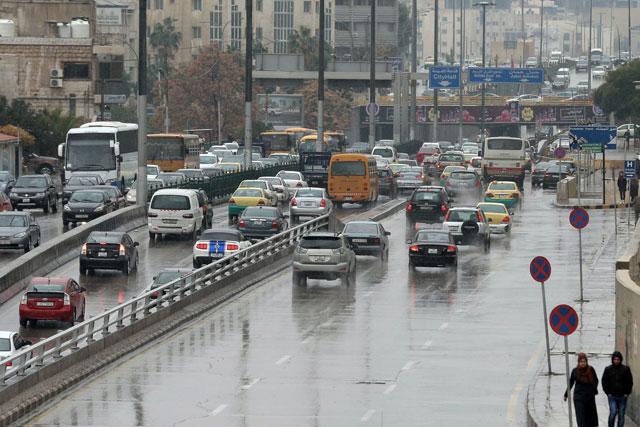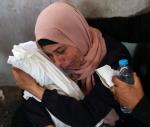You are here
‘40 coldest days of winter start today’
By JT - Dec 20,2016 - Last updated at Dec 20,2016

Rainfall during the 40 coldest days of winter usually constitutes 30 per cent of the long-term annual average of rain around the Kingdom (Photo by Hassan Tamimi)
AMMAN — Today marks the winter solstice and the start of marbaniyeh in Jordan — the 40 coldest days of winter — the Jordan News Agency, Petra, reported Tuesday.
The sun on Wednesday will rise at 6:33am and set at 4:36pm, marking the shortest day of the year at 10 hours and three minutes. Night will be 13hours and 57 minutes long, Jordan Meteorological Department (JMD) Director Mohammad Samawi told Petra.
The marbaniyeh, he added, is expected to conclude on January 30, 2017.
Extreme cold weather, along with frost formation, are expected during these 40 days when cold and dry easterly winds affect the Kingdom, Samawi explained.
Heavy rain and occasional snow may fall during this period in the event of a wet air mass accompanied by northwesterly to westerly winds, he added.
During the marbaniyeh of 2015-2016, snow fell in Jordan in January 2016 with varying intensity, Samawi said.
Rainfall during the 40 days usually constitutes 30 per cent of the long-term annual average of rain around the Kingdom, he noted.
The highest amount of rainfall in Amman during marbaniyeh was in the 1973-1974 wet season, with 215 millimetres registered. The lowest amount was in the 2013-2014 season — 0.6 millimetres.
Temperatures during this period, according to the JMD records, range between an average high of 12.7°C and an average low of 3.8°C.
The highest temperature recorded during the marbaniyeh was 31.5°C on January 3, 1959 in Aqaba, while the lowest temperature was -14°C , registered in Shobak on January 7, 1992, Samawi said.
Agriculture Ministry Spokesperson Nimer Haddadin said the marbaniyeh is expected to have a positive effect on the agricultural sector, since it benefits farmers by watering their crops.
Haddadin urged farmers to take the necessary precaution to protect their crops from the cold weather, especially in case of frost, urging them to continuously check weather updates.
As for fruitful trees, Haddadin said they need the cold hours, which he said have positive effects on the harvest and its quality, while livestock breeders should take measures to ensure the safety of their cattle and poultry.
Poultry breeders should control temperatures within coops and organise the feeding schedules while beekeepers are urged to cover the hives well and provide drinking water near the beehives, preserving them in warm areas.
Related Articles
AMMAN — Tuesday, December 22, marks the winter solstice in the northern hemisphere and the start of marbaniyeh in Jordan — the 40 coldest da
AMMAN — As Tuesday marks the winter solstice and the start of marbaniyeh — the forty coldest days of the year — the Ministry of Ag
Monday marks the winter solstice in the northern hemisphere and the start of marbaniyeh in Jordan — the 40 coldest days of winter, the Jordan Meteorological Department (JMD) said on Saturday.
















